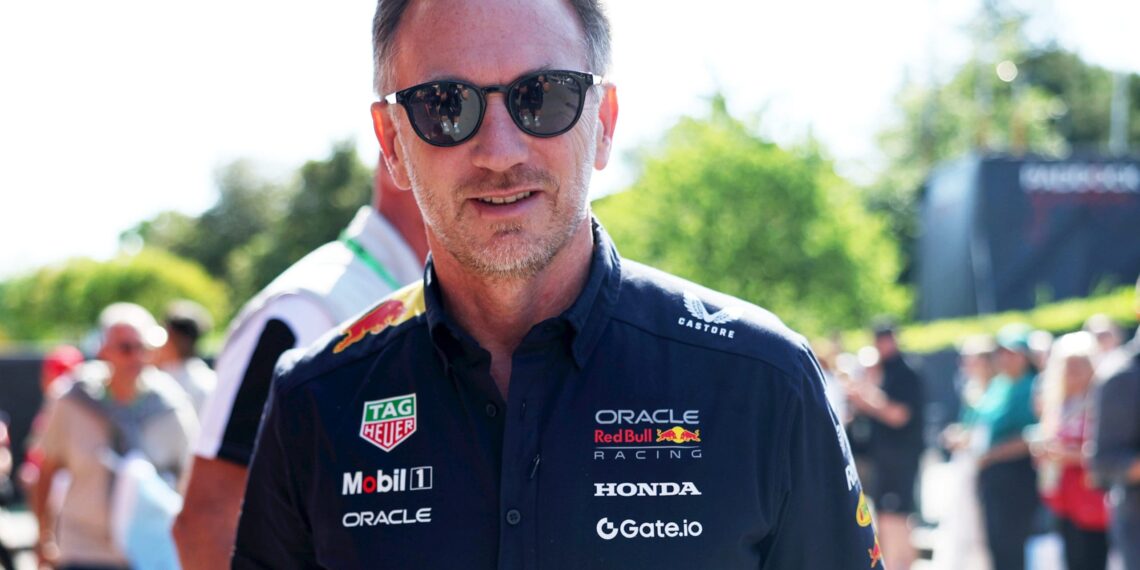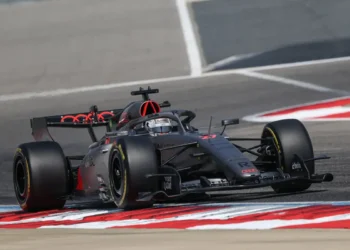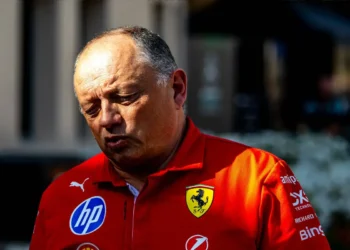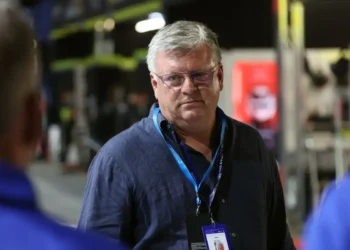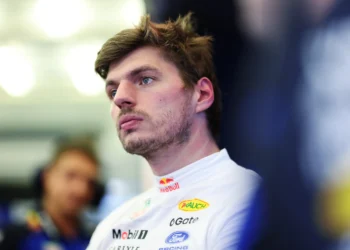Title: Christian Horner’s Red Bull Reign Ends: A New Era Begins!
In a stunning shake-up that marks the end of an era, Christian Horner has officially been ousted from his role as a director of Red Bull Racing, severing the final ties to the legendary team he once helmed. This seismic shift comes after more than a decade of leadership that secured eight drivers’ titles and six constructors’ championships for the iconic racing brand.
Documents lodged with the UK’s Companies House reveal that Horner’s illustrious tenure at Red Bull has reached its conclusion, following an abrupt dismissal just days after the British Grand Prix. While he initially retained his status as a Red Bull employee, albeit without any operational responsibilities, the latest developments confirm that he has been completely removed from his director roles in both Red Bull Racing and Red Bull Technology Limited—the pivotal holding company for the Formula 1 operation.
Stepping into the vacuum left by Horner is Stefan Salzer, the global head of human resources at Red Bull GmbH, who has been appointed as the new director of both Red Bull Racing and Red Bull Technology. Salzer’s arrival on the scene is not just a formality; it signals a fresh direction for the team as they forge ahead into a new chapter without their long-standing leader. This transition was officially enacted on July 8, the Monday following the British Grand Prix, and just a day before Horner’s departure was made public.
For Horner, this marks the end of a remarkable journey that began in March 2007 when he was appointed as director of Red Bull Racing. Alongside Helmut Marko, Horner helped steer the team to unprecedented success. However, with Salzer now at the helm alongside Marko, the team is poised for a redefined future.
Despite his significant contributions to Red Bull’s dominance in Formula 1, Horner has maintained a low profile since his exit, even amidst swirling rumors of a potential return to the sport. Speculations have linked him to a partnership with Bernie Ecclestone to acquire the Alpine F1 team, but sources indicate that this prospect is far from becoming a reality. Furthermore, his name was floated as a possible successor to Fred Vasseur at Ferrari, yet the Scuderia has since quelled those whispers by extending Vasseur’s contract.
At 51 years old, Horner is expected to make a comeback in the racing world, possibly acquiring an ownership stake in a team, mirroring the model adopted by Toto Wolff with Mercedes. As Red Bull Racing prepares for its future under new leadership, one thing remains clear: the legacy of Christian Horner will be felt for years to come, but the team’s eyes are firmly set on new horizons.
Stay tuned as we follow this unfolding narrative and explore what this monumental leadership change means for the future of Red Bull Racing!

